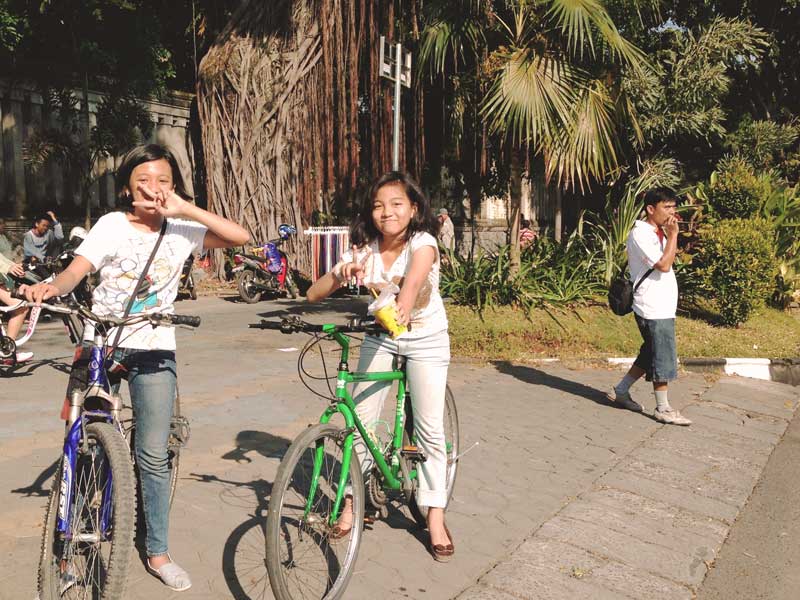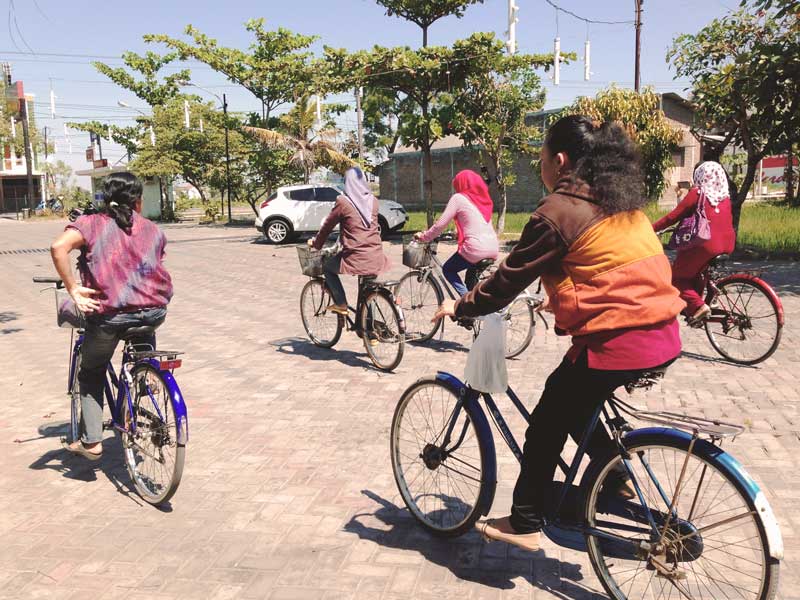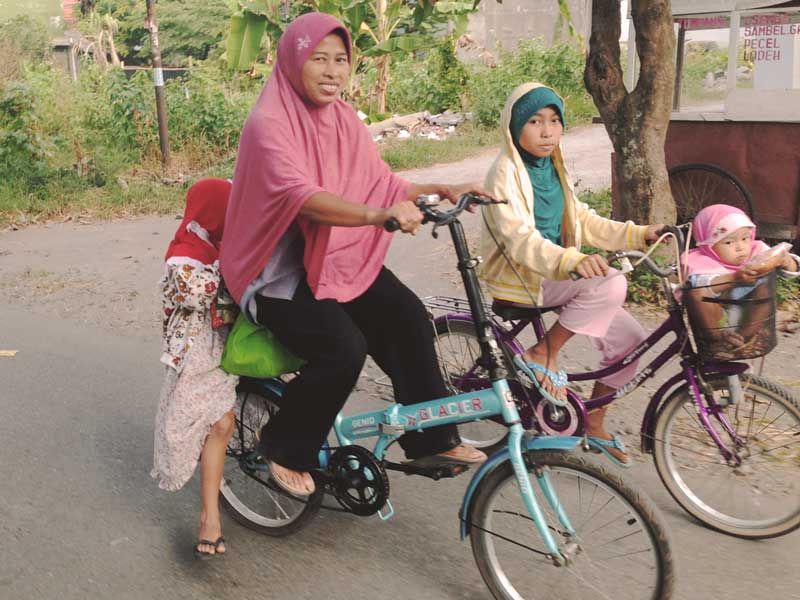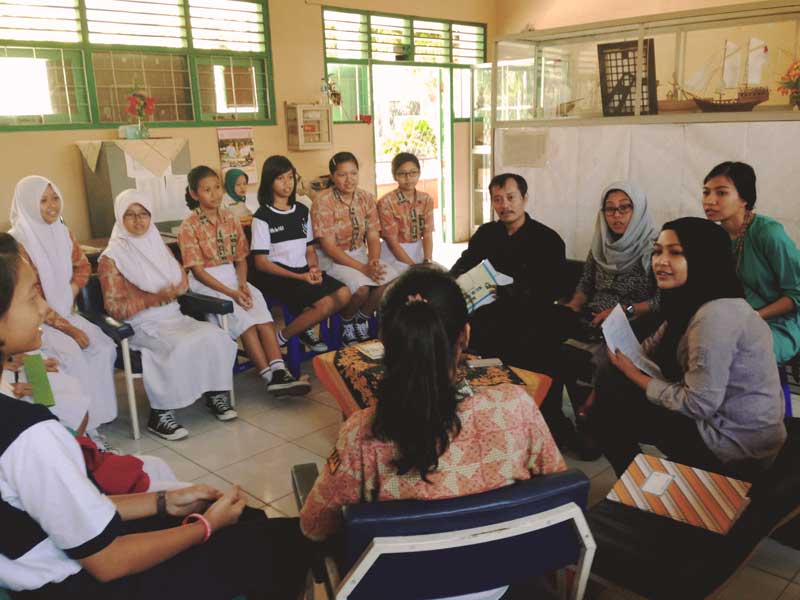Women on Wheels Indonesia: Pilot Project
Surakarta (Solo), Central Java, Indonesia
Following the first phases of the Women on Wheels Project in Indonesia –the Feasibility Study and Toolbox Program Design– Kota Kita and Living Cities prepare for the development of the Pilot Project. This third phase, to be implemented from January to December 2016, consists of a multifaceted action plan which main purpose is to promote cycling for girls and women in Solo. The Pilot Project will work with four key population groups and institutions from the city to facilitate and share skills for the advocacy and promotion of a pro-cycling agenda, as well as to educate and raise awareness about the benefits of this mode of transportation. Our team will develop a sequence of activities based on the inputs obtained from prior stages of context-based research and interactions with several stakeholders and population groups. Promoting this mode of transportation for women aims to improve the quality of life of Solo’s citizens, fostering the convenience of cycling’s economic, health and environmental advantages.
The Pilot Project for Women on Wheels in Indonesia aims to implement different tools to promote female cycling in Solo. With a partnership between Kota Kita, Living Cities and associated researchers, these tools will be executed through a series of activities that respond to the conditions of our four chosen target groups or strategy lines for the promotion of cycling: schoolgirls, female factory workers, Surakarta’s Department of Transportation and civil society groups. In addition to this mixed stakeholder approach, the pro-cycling and awareness raising activities are structured to address the issues of infrastructure and safety, bicycle design and norms and attitudes. Educational campaigns, awareness-raising events and joint efforts for infrastructure development and traffic regulations are some of the examples of the proposed activities that will be implemented throughout the following months in Solo.
As many other Indonesian cities, Solo is experimenting an increasingly rapid motorization, mainly through increased motorcycle ownership. This process has been followed by increasing air pollution levels, road congestion, fossil fuel dependency and traffic accidents. Further, the role of non-motorized modes, among them cycling, has been minimized, reducing the mobility and comfort of Solonese cyclists, many of who are women and young girls. This project aims to improve these conditions through the formulation of gender sensitive and context based solutions. As women tend to be the last to motorize in their households, the implementation of tools for the promotion and championing of cycling is crucial for the improvement of their quality of life, considering the potential of the bicycle as a mode for sustainable mobilization and independence.


Our integrative approach, through the joint collaboration between different population groups and institutions, looks to create a process deeply rooted in Solo’s society, influencing not only women, but its population and organizations as a whole.
Through the implementation period of the pilot project, a sequence of interrelated activities will be designed, executed and monitored by a multidisciplinary team, in collaboration with the project’s direct beneficiaries, bicycle manufacturers and distributors, repair shop owners, school, factory and governmental authorities, and many other Solonese citizens. We expect to create concrete deliverables, such as multifunctional bike nodes, renovated slow lanes, promotional campaigns and targeted cycling events and bicycle sponsorship programs, among others. The strategy for the implementation of the Pilot Project, as well as a detailed description of its activities, is compiled in a final document –the Toolbox Program Design Manual–, (open for public consultation in the website?). This manual will serve as a guide for the programing and execution of the formulated solutions, with specified milestones to measure the advance of the project. Overall, this multifaceted scheme expects to reposition the bicycle as a vehicle for sustainability, cheap and flexible mobility and independence for girls and women.

